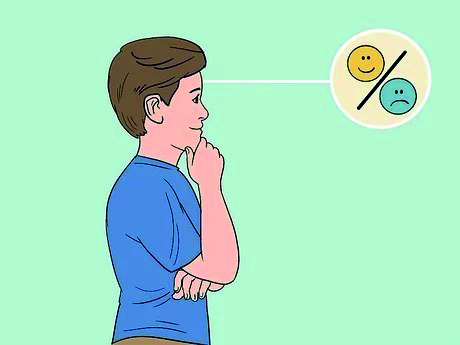 Being mature is often associated with one’s age. Age and experience can, no doubt, assist in gaining greater perspective, more insight, more temperance. But maturity is not the reserve of age – it’s a form of learned behaviour, it’s how you deal with yourself and others, in keeping with your circumstances, suffering, success and failures. It’s about how you respond when yanked out of your comfort zone.
Being mature is often associated with one’s age. Age and experience can, no doubt, assist in gaining greater perspective, more insight, more temperance. But maturity is not the reserve of age – it’s a form of learned behaviour, it’s how you deal with yourself and others, in keeping with your circumstances, suffering, success and failures. It’s about how you respond when yanked out of your comfort zone.
Maturity is the reflection of one’s level of personal development and intellectual growth. It’s an ongoing process which requires self-control and mindfulness. You mature all through your life in several areas: Physical Maturity comprises the four stages of growth your body goes through – from an infant, child, adolescent and adult. Mental maturity is when you improve your cognitive skills such as reasoning, processing information or assimilating stimuli, and knowledge. It is the application of all you’ve learnt.
Emotional maturity is all about gaining control over your emotions and working with them. People incapable of expressing emotions are termed distant, cold individuals. They often hide their feelings and find it difficult to face issues. Emotional immaturity is when you find it difficult to feel vulnerable enough to admit negative feelings or experiences or even admit your own mistakes. Emotionally immature folks often blame others and the world for their mistakes. They are unable to handle stress and often act out displaying temper tantrums and disrespect for others around only trying to help. Emotionally immature individuals refuse to ask for help – they fear looking weak or insecure and resist any aid or guidance as it bruises their egos.
In life, the journey through and to maturity, is generally a rocky one. We often resist change, challenges and lessons in character building. Whether it is fear or our need to cling to our behaviour patterns, we tend to perpetuate into these unshakable identities which adhere to old habits. Maturity can only seep in when we are aware, mindful and ready to reflect and course correct. Here are a few signs of emotionally mature people:
You Discuss Ideas, Not People: Human nature propels us to talk about people rather than ideas, philosophies and events. Talking about people is not a bad thing but we seem to always bring in the negative in our conversations. Occasionally, we revere someone’s efforts or progress but mostly, we tend to gossip. Events and things are fine points of discussion but when your conversations make the shift to primarily idea-based and growth-oriented concepts, your level of satisfaction in life rises as well.
Maturity Is About Taking Responsibility: In essence, we are responsible for our words and our deeds. Every situation, event, incident you are involved with becomes a responsibility. Often, people shirk their responsibilities or dump it onto others. The outcomes aren’t always pretty. Over time, these behaviour patterns can cause anxiety, grief and suffering. You lose your sense of reality and you end up losing people and relationships that once mattered. But worst of all, you lose yourself.
You Learn To Keep An Open Mind: Maturity means keeping your mind open to everything and attached to nothing. One’s desires to be right would be overwhelming at times, often driving wedges into relationships you value. Mature people understand the need to give first in order to receive.
Being comfortable In One’s Skin: Mature people are extremely comfortable in their skin – they love and value themselves and enjoy their own company as also that of friends. They do not consider being alone as being lonely. They are big on ‘me-time’, focusing on time for self-development, embracing the beauty of their own thoughts and aspirations.
Having Positive Outlook: Mature people have positive attitudes. They actively avoid negativity or sacrificing any part of themselves. A truly positive attitude is about facing challenges and responsibilities, knowing that every obstacle is an opportunity to grow.
Listening More, Speaking Less: Maturity is about the ability to listen more than you speak, to appreciate others’ viewpoints despite the contradictions you may hold. Maturity is to learn but never take advice from people who are not where you want to be in life.
Maturity is about realizing that your mental health matters more than any relationship. Maturity is never forcing anyone to choose you. It’s about knowing that no one owes you a thing. You play to win your own battles. Maturity is knowing you are not responsible for another’s happiness. You do you! You master the art of taking action without waiting for the right time, you don’t allow pain to destroy you… instead you build strength from it! As the famous saying goes, “Maturity is the ability to live in peace with that which we cannot change.”
- Writers And All That Jazz - 19 October2024
- When The Mask Comes Off! - 14 September2024
- The Spirit Of New Year - 10 August2024
